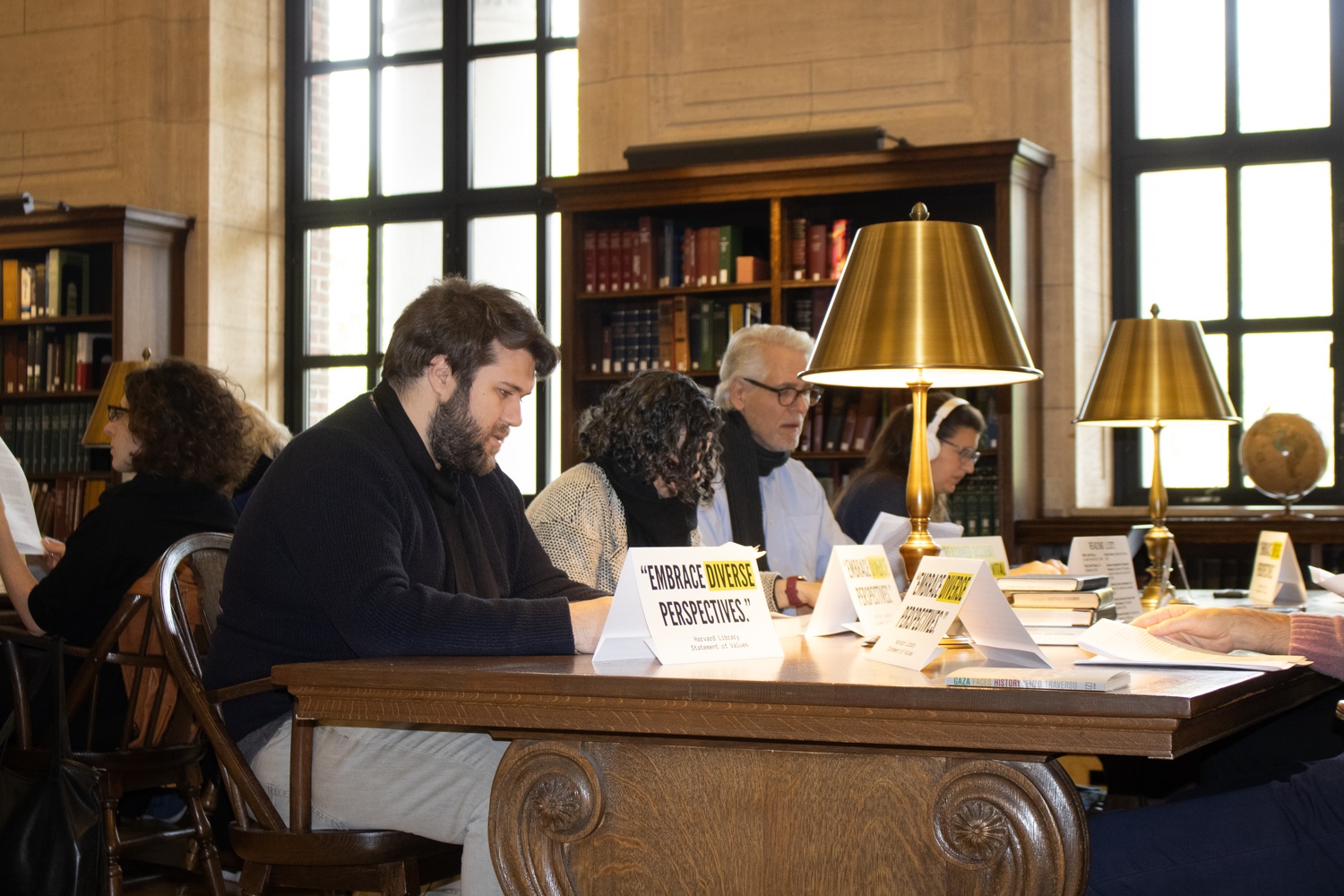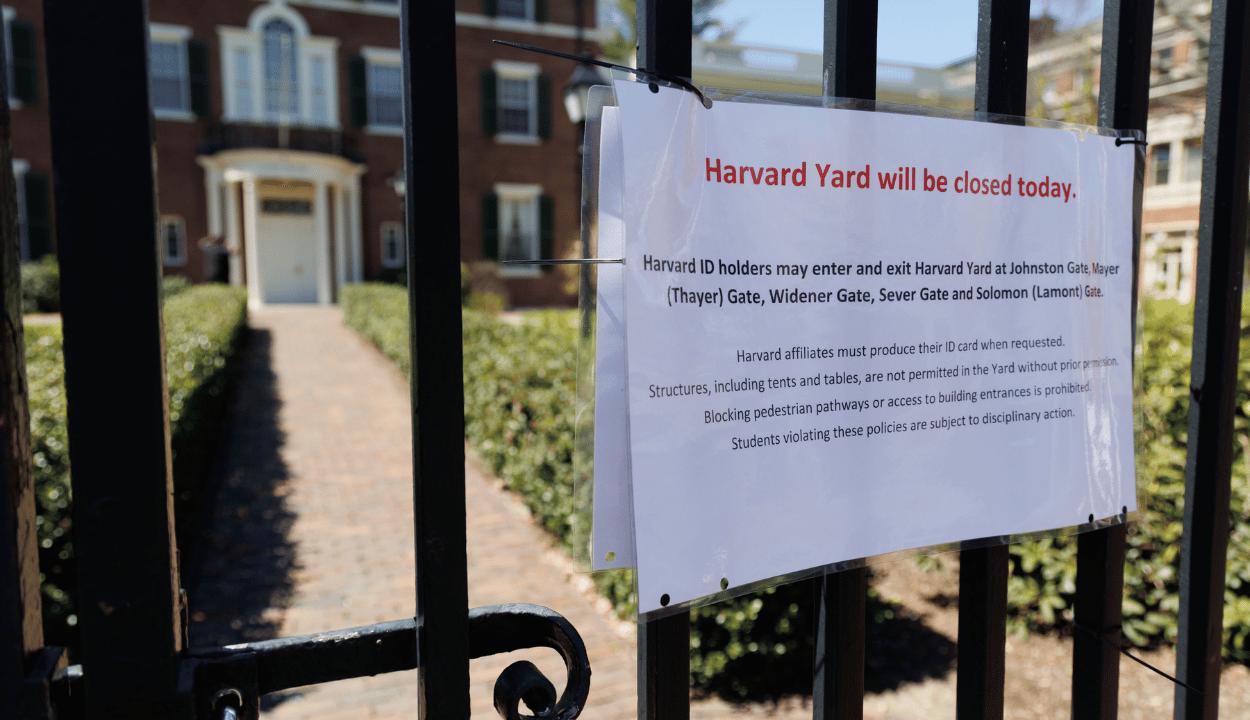
Harvard University suspended around 25 faculty members from Widener Library for participating in a silent “study-in” pro-Palestine protest.
The protest, held in solidarity with students who faced similar suspensions, focused on free expression and sparked a new wave of debate over academic freedom on campus.
The recent suspension of Harvard faculty follows last month’s student-led “study-in” protest where approximately 30 students occupied the library to express pro-Palestinian views.
Faculty participants echoed the students’ silent approach, quietly reading and displaying statements from Harvard’s library values, including “Embrace diverse perspectives.” The administration issued two-week suspensions for their involvement in the pro-Palestine protest.
Erik Baker, a lecturer in the History of Science Department, shared his concerns on social media.
My faculty colleagues and I have been banned from Widener Library for two weeks to punish us for reading quietly while displaying quotations from the Library’s statement of values.
Erik Baker wrote on X
Baker went on to say, "For some reason, The Crimson has decided to make me the poster boy for this whole affair but for what it's worth there are also some really eminent senior scholars who took a stand and are now being punished for it."
According to another participating professor, who preferred to remain anonymous, roughly 25 faculty members received suspension notices similar to those sent to the students last month.

Harvard justified its actions by citing library policies prohibiting demonstrations within library spaces. In an official notification, library administrators informed faculty that their actions went against university policy by “capturing people’s attention through the display of tent-card signs.”
Martha Whitehead, head of Harvard’s library system, defended the administration’s stance against the pro-Palestine protest in an official statement.
The library must be a sanctuary for its community… If our library spaces become a space for protest and demonstration—quiet or otherwise, and no matter the message—they will be diverted from their vital role as places for learning and research.
Martha Whitehead
She expressed concern over group protests, arguing that even silent protests might disrupt the library’s purpose as a place for individual study and reflection.
The Council on Academic Freedom at Harvard (CAFH) voiced strong opposition to the suspensions. Professor Melanie Matchett Wood, CAFH co-president, argued that “students who sat quietly and studied did not interfere with normal campus activity,” and she called the library suspensions “unnecessary” for protecting a silent space.

Following the faculty suspension, more than 60 students organized a similar “study-in” at Harvard Law School’s library, leading to additional suspensions.
Library leaders reaffirmed that displaying signs in reading rooms shifts the environment from individual learning to a forum for group statements, a stance they say supports maintaining the academic setting.
https://twitter.com/RyanDEnos/status/1846932151369191754
However, many students and faculty have called for a reassessment of these policies, which critics say stifle political expression and academic dialogue. Government professor Ryan Enos, a participant in the pro-Palestine protests, emphasized that rules should not shift each time they are applied.
He noted, “The logic for them is shifting… and it doesn't seem just to penalize people for rules that are being interpreted differently every time they're applied.” Faculty members now await further action and have voiced their intent to discuss these matters in upcoming meetings.